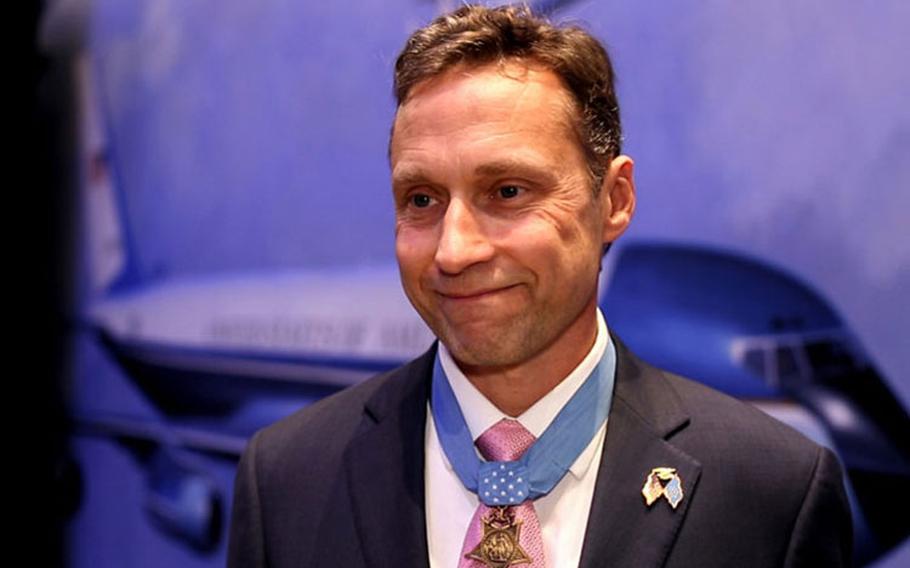Community News
Resiliency: A Team Effort in the military
Stripes Japan June 24, 2020

()
Right now it seems every one of us can use all the help we can get in strengthening our resiliency to the challenges life throws our way.
In recent years, the military has experienced stressors and hardships that have impacted the entire force, including ship collisions, aircraft crashes, maintenance delays, increased rates of suicide, and most recently, the COVID-19 pandemic. These challenges may prove to be overwhelming for some service members. Service members that have developed the ability to apply mental resiliency, along with other mental health resources, learn that the challenges can be manageable.
“Deployments can cause huge stress as members are separated from their families and friends for long periods of time,” said Air Force Capt. Jason Gunnels, chaplain at Defense Media Activity, Riverside in California. “Depending on the deployment, members may face danger and will most likely work long hours.”
Gunnels emphasized these hardships are faced not only by the service member, but their family as well.
“Moving around the country and world means kids have to change school and spouses have to try to find different jobs every few years,” said Gunnels. “It is very important that each service member’s family gets plugged into a good support system at their duty station.”
A strong support system is crucial for developing a foundation for resiliency.
Some resources that can help these service members are Military OneSource, their unit chaplain, Military and Family Life Counselors and close peers.
Military OneSource provides information, resources and support to service members and families to help navigate through the challenges military life may throw their way, including personal and professional development.
Unit chaplains are religious leaders, responsible for tending to the spiritual as well as moral well-being of service members and their family. They can provide confidential counseling and encouragement and are stationed wherever there are military personnel.
For those who have departed the military, the Military and Family Life Counselor program offers confidential, short-term, non-medical counseling services. Veterans and their immediate family members are eligible to receive these services for up to 180 days after separating or retiring from the military.
Additionally, a resource that may be overlooked, but is often one of the closest, are peers. Many service members develop an everlasting bond with their peers. With so much time spent together, a level of trust and respect can often develop. Additionally, with so many different backgrounds, there is bound to be someone with experience who may help an individual in need.
“I think that it is fair for supervisors and peers to ask a person if something is wrong,” said Gunnels. “If they open up then the supervisors and peers could refer them to a helpful agency to try to support.”
Not being able to resolve issues at home may have a detrimental effect on a team’s ability to carry out a mission. It’s important for not only the service member, but everyone in the team to know the proper channels to guide them as needed.
“We take care of each other regardless of what the problem is,” said Medal of Honor recipient retired Navy Master Chief Britt K. Slabinski. “This is the definition of who we are in the military.”
Slabinski was awarded the Medal of Honor for his actions during the Battle of Takur Ghar in Afghanistan on March 4, 2002. The then-Senior Chief Slabinski led a reconnaissance team atop the 10,000-foot, snow-covered mountain where they were met with heavy gunfire from three directions. While surrounded, throughout the next 14 hours, Slabinski stabilized the casualties and continued the fight against the enemy until the area was secured and his team was extracted.
With the increase of mental health issues in the military, Slabinski stressed whether in combat or not, it’s okay to ask for help.
“Talk to your friends, talk to your family,” said Slabinski. “Help is there for you, just go and ask for it. Everyone out there goes through situations where they need help. It’s okay to ask.”
Mental health has always been an important topic in the military. According to the Annual Suicide Report in 2018 released by the Department of Defense, suicides among service members reached a record-high. Work and personal stress can take a toll on one’s mental health, making it important for us to be our brother or sister’s keeper.
“We already do a great job of creating great phenomenal warriors and war fighters,” said Slabinski. “Our primary role here is to protect the homeland, but that can take a terrible toll on us regardless of what your job is. No matter how dark the days may get, the sun is still shining out there on the other side of the clouds.”
Gunnels agreed and mentioned asking for help may not always be easy, but it is very brave. People who are struggling with something and ask for help are taking the first step to healing.
A team is simply people coming together to achieve a common goal. With many resources at one’s fingertips, they all have a goal in mind: to help service members help themselves. Knowing who is in your support structure is key to building a solid foundation of resilience. No matter what the issue or challenge may be, there is always a team ready to help every service member. You are not alone.